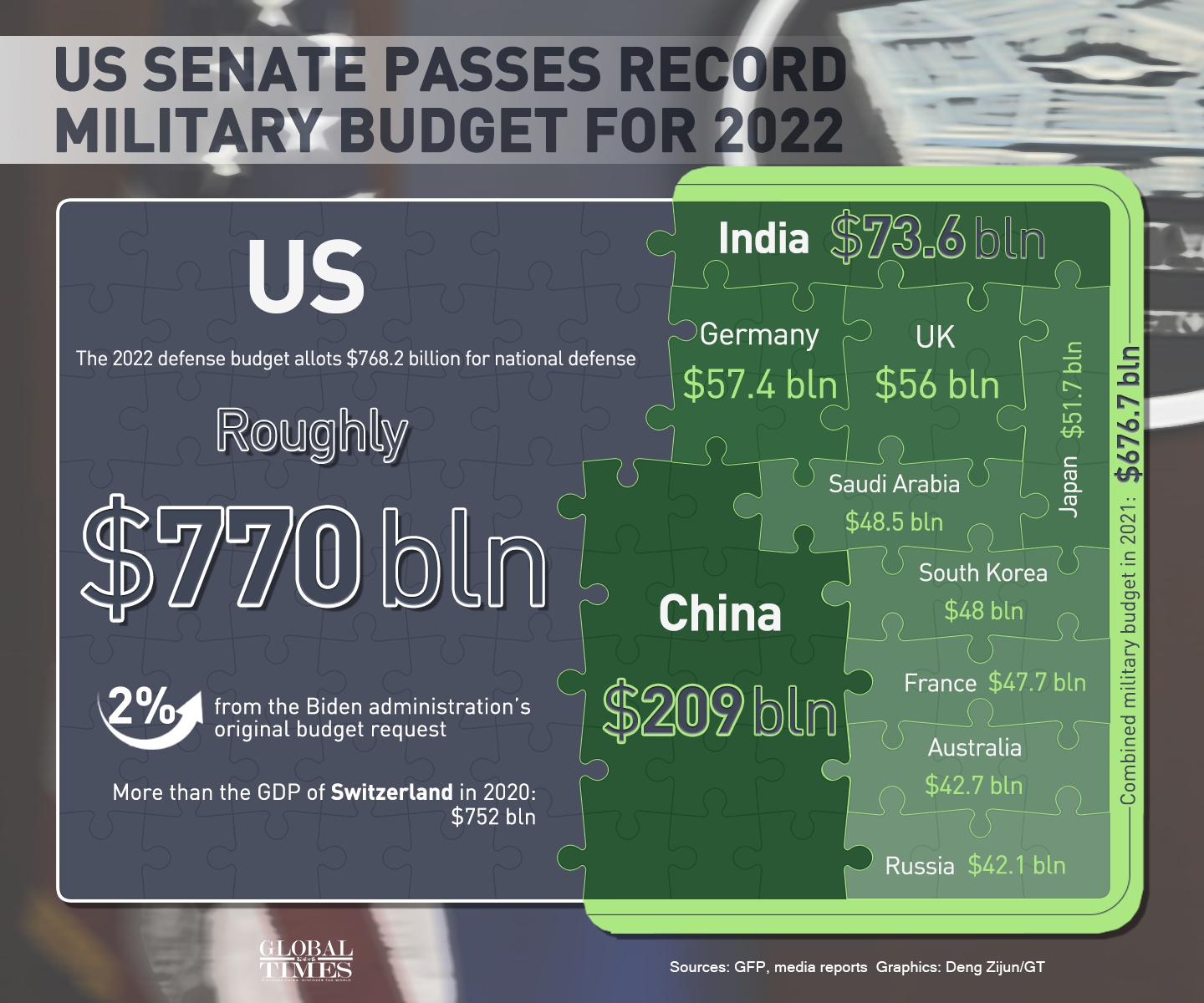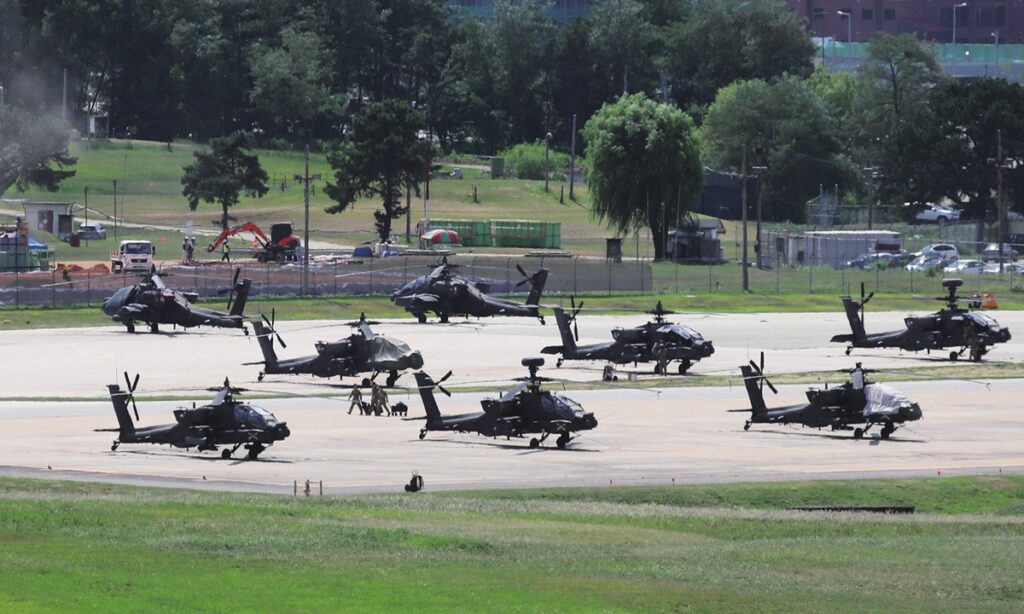Chinese mainland should ‘prepare for worst’ in strategy, tactics
The US Congress on Wednesday passed a national defense bill which created a new record of $770 billion budget, with $7.1 billion allocated toward beefing up the US position against China, as well as provisions concerning the island of Taiwan including inviting it to a multilateral naval exercise.
Judging from items in the act, Chinese observers said an escalation in the collusion between the US and the Democratic Progressive Party (DPP) authority is likely and the mainland should be prepared in strategy and military tactics to respond to further provocations.
The US Senate on Wednesday passed the 2022 National Defense Authorization Act (NDAA) after the House nodded to it on December 7. The bill will wait for a signature from President Joe Biden before becoming law, media reported.

US senate passes record military budget for 2022 Graphic: Deng Zijun/GT
The act is $25 billion more than Biden had requested. On China, the bill includes $7.1 billion for the Pacific Deterrence Initiative and a statement of congressional support for the defense of Taiwan, as well as a ban on the US Department of Defense procuring products “produced with forced labor” from Northwest China’s Xinjiang Uygur Autonomous Region.
US media were brief on the Taiwan parts in the act but island-based media outlet the Taiwan News reported on Thursday the bill states that the naval force of the island of Taiwan should be invited to participate in the US-led Rim of the Pacific exercise (RIMPAC) conducted in 2022.
Song Zhongping, a Chinese mainland military expert and TV commentator, believed there is a high likelihood that Biden will invite the island of Taiwan to RIMPAC, considering he already offered platform for the secessionist DPP authority at the so-called “summit for democracy,” which is of the same purpose – to lift Taiwan’s international presence.
The Chinese mainland should “prepare for the worst” and get ready, in strategy and military tactics, for any scenario amid the worsening cross-Straits situations and China-US rivalry, Song said, as the US has lost multiple “handles” to contain China, including Hong Kong and Xizang (Tibet), which will make it play the “Taiwan card” hysterically.
But the expert also pointed out that even if Taiwan’s armed forces join the exercise, they will only play a peripheral role.
Li Haidong, professor at the Institute of International Relations of the China Foreign Affairs University, agreed that the US and DPP would increase their collusion, warning that provocations on the most sensitive topic in China-US relations will lead to more frictions and higher risks of out of control consequences.
According to open data, the US has the highest military budget in the world, four times that of China’s, despite the contrast in population scale.
The National Defense Authorization Act also included $300 million to support Ukraine, over which the US and NATO are in fierce dispute with Russia.
Li said the shockingly high and continuously rising military budget is the foundation for the US to maintain its hegemonic status worldwide. To justify the high spending, the US has to create conflicts, crises and hype “external threats,” which only demonstrates that the US is the “destroyer of world peace.”
As for the bans on Pentagon procurement of products made by so-called forced labor in China’s Xinjiang region, Li said it is nothing new amid the trend of adding the flavor of Xinjiang to any relevant or irrelevant bills and documents.
Such moves fully prove the US defense act is not about defense but about making trouble for others, experts said.
AH-64A Apache Attack Helicopters at US Army base Camp Humphreys in Pyeongtaek, South Korea. Photo: VCG



